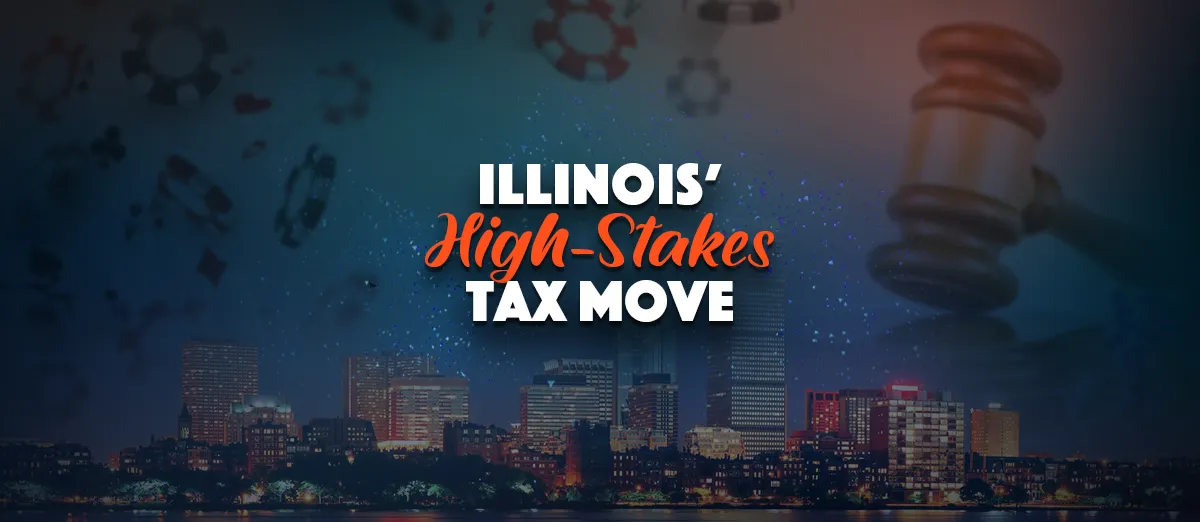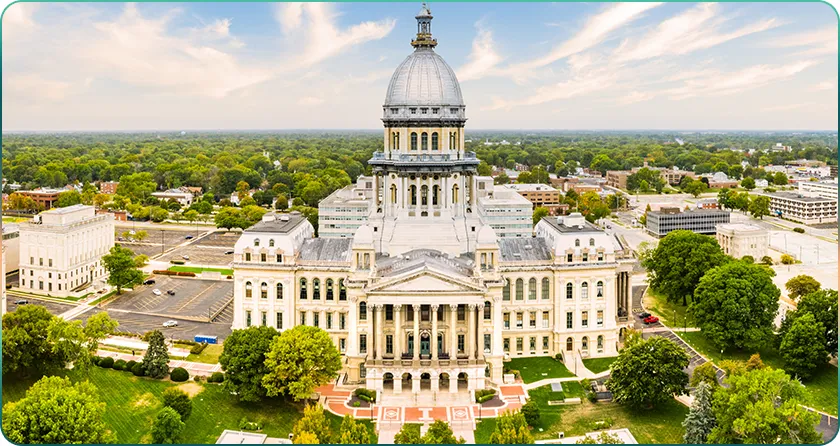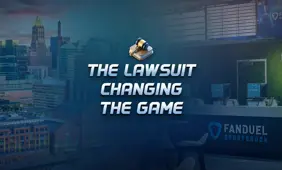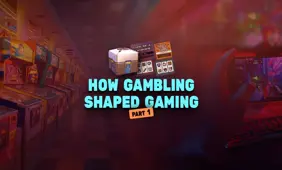How Illinois’ New Gambling Surcharge Could Reshape the State’s Betting Market?

Illinois has rolled the dice on a bold new revenue-generating maneuver – a targeted surcharge on gambling operators that threatens to reshape the state's gaming landscape. While winter is still some way off, this surcharge could well sweep into the ‘Windy City’, causing a storm of its own, and we've taken a look at the debris it might leave in its wake.
Indeed, as lawmakers shuffle policy pieces in Springfield, casino operators and sportsbook stakeholders alike are holding their breath. Introduced under the banner of fiscal responsibility, the gambling surcharge is poised to extract additional tax revenue from one of the state’s most lucrative entertainment sectors. But with every move on the regulatory roulette wheel, risks accompany rewards. This surcharge might appear subtle on paper, but its shockwaves could ripple far beyond state lines.
As of 2025, Illinois already boasts one of the most diversified gambling portfolios in the nation: from bustling brick-and-mortar casinos in Chicagoland to a fast-growing online sports betting market. But its insatiable appetite for public spending – on pensions, infrastructure, and education – means lawmakers have long been sniffing out new sources of revenue. In that context, the gambling sector, flush with profit and largely resilient to economic downturns, makes a tempting target.
The new surcharge, layered on top of existing tax obligations, introduces a higher marginal rate for operators crossing certain revenue thresholds. Proponents frame it as a necessary lever to “ensure big winners give back”, while critics claim it’s a punitive, politically convenient cash grab that could jeopardize long-term growth. Regardless of perspective, the new levy is more than a headline – it’s a harbinger of potential tectonic shifts in how American states balance taxation and economic development in the digital age.
Tax or Trap? The Strategic Case for the Surcharge
“Why now, and why Illinois?” appears to be the feeling. The answer, though, lies at a crossroads of both economics and politics. What is perhaps not widely publicized is that Illinois faces a multi-billion-dollar budget gap, which has been exacerbated by post-pandemic recovery spending in addition to looming public pension liabilities. As a result of this, the state is also navigating the tricky terrain of rising voter discontent with perceived fiscal mismanagement.
Also, against that backdrop, gambling has seemingly emerged not just as a financial tool but a political scapegoat; an industry robust enough to shoulder extra burden without, from a wider perspective at least, provoking public outcry. The mechanics of the surcharge are designed to appear progressive – something that lawmakers at least want to be perceived as. Something about it, in a way, screams ‘smoke and mirrors’ – a dull mist perhaps doing enough to paper over gleaming cracks.
It should also be noted that operators generating more than $200 million annually in gross gaming revenue (GGR) may see an additional 1.5% to 3% surcharge, tiered based on income. While smaller operators escape the highest bracket, the overall tone is clear – if you're profiting considerably from Illinois gamblers, expect to pay a premium for the privilege.
Supporters, meanwhile, tout a triple-threat benefit; it raises much-needed funds, curbs excessive operator profits, and appeases voter concerns over corporate exploitation.
However, beneath the surface, there’s strategic sleight of hand. Lawmakers know this move plays well with an electorate growing wary of “big gambling”. The optics of taxing well-heeled gambling conglomerates feed into a populist narrative – one that helps incumbents in an election year sell fiscal responsibility without slashing public services. A hand, perhaps, well played.
Yet critics argue that this surcharge is not a tax – it’s a trap. They see it as a slippery slope toward unpredictable, politically motivated levies that reduce business confidence. When policy starts to resemble a poker game, with rules changing mid-round, operators may simply fold their future expansion plans.
Could Operators Leave or Rethink Expansion?
The operators' response to Illinois’ new surcharge is a complex cocktail of frustration, calculation, and cautious strategy with an aftertaste that lingers on the palette. While no one is threatening to abandon ship just yet, whispers of “rethinking growth” are echoing through earnings calls and boardrooms. For operators like DraftKings, FanDuel, and BetMGM – already navigating thin margins in competitive markets – the surcharge adds a new layer of cost that could affect pricing, promotions, and ultimately, profitability. It should be said that there’s also the reputational risk; when a state begins to levy surcharges unilaterally, it introduces an element of unpredictability that’s toxic to long-term planning.
Gaming companies thrive on certainty. They need to model returns, plan infrastructure, and project marketing spends over multiple years. If they suspect that Illinois might impose further fiscal penalties down the line, they could choose to prioritize states with clearer, more consistent tax regimes.
Smaller operators are especially vulnerable. While some are shielded from the surcharge initially, any growth that pushes them into the next revenue bracket could turn into a poisoned chalice. Instead of scaling confidently, these operators may play defensively – limiting investments, cutting back on staff, or redirecting growth funds to friendlier jurisdictions.
That raises the prospect of a chilling effect which, against the backdrop of a harsh Illinois winter, may become a case of ‘survival of the fittest’. Could the surcharge create an ecosystem where only the biggest survive, strangling innovation and diversity in Illinois’ gambling scene? That risk is real. Operators may view the state less as a strategic hub and more as a revenue minefield – one that requires tiptoeing rather than bold expansion.

Dominoes and Duplicates: Will Other States Follow Suit?
Like any good move in politics, Illinois’ surcharge may prove contagious. Across the U.S., states are watching the Prairie State with keen interest. Many face similar budget pressures and share similar political motivations. If Illinois’ gamble pays off – i.e., if revenues rise without significant operator flight – other states might see it as a blueprint rather than a blunder.
New York, already sporting one of the highest tax rates on online sports betting at 51%, could easily layer in a surcharge of its own. Pennsylvania, Michigan, and even Massachusetts might follow, especially as they seek ways to fund expansive public initiatives without alienating voters. Once one state succeeds in squeezing more out of gaming companies without seeing an exodus, others will surely try.
This potential domino effect threatens to upset the delicate balance operators currently enjoy. At present, many accept high taxes in exchange for market access, assuming those taxes are stable. But if surcharges start sprouting like mushrooms after rain, the very business model of national gambling brands comes under stress. Margins narrow, innovation stalls, and consumer experience can suffer.
Some states, conversely, may see Illinois’ surcharge as a cautionary tale. Places like Iowa, Indiana, and Arizona could seize the moment to position themselves as more operator-friendly alternatives – rolling out red carpets while Illinois rolls out red tape. In a competitive regulatory landscape, where every operator is choosing where to double down and where to disengage, perception is powerful.
Winners, Losers, and the Political Poker Game Ahead
In the short term, Illinois may enjoy the benefits of its surcharge strategy. Revenues will likely rise, political leaders will tout fiscal wins, and voters will hear that big corporations are “finally paying their fair share”. On paper, it looks like a political full house.
But look closer, and cracks emerge. Operators will pass on some of the surcharge burden to consumers – via reduced promotions, shorter odds, or less generous comps at casinos. That hurts the very public the surcharge claims to protect. Local employees may feel the squeeze too, as operators trim costs to protect profits. In effect, the surcharge might feel like a hidden tax on both play and payroll.
Still, the biggest political payoff may be symbolic. In an era of increasing scrutiny over gambling’s social costs – addiction, financial ruin, community decay – Illinois’ move is being positioned as a moral counterweight. It’s less about dollars and more about direction. Lawmakers are signaling that they are not letting gambling grow unchecked. Whether this message resonates or backfires remains to be seen.
Long-term, the battle lines are drawn. Advocacy groups may push for further taxes. Operators may fund counter-campaigns. Lobbyists will have a field day. Meanwhile, consumers may see fewer choices, worse odds, or an exodus of innovative brands. Like poker played under pressure, the next moves will demand nerves of steel and strategic finesse.
Illinois might have introduced a simple surcharge, but its ripple effects span far wider. From economic models to political fortunes, from corporate strategies to consumer experiences, the state’s new levy is more than a policy – it’s a test case. And in the world of gambling, every test comes with stakes.
Inspecting the Illinois Gambling Landscape Beyond the Levy
Illinois is currently home to a healthy mix of major national gambling operators and regional players, each with different stakes – and levels of exposure – in the market.
Companies like DraftKings, FanDuel, BetMGM, Caesars, and PointsBet dominate the online sports betting scene, while Rush Street Interactive, through its BetRivers brand and deep local roots, commands both digital and physical market presence. Penn Entertainment, with its recently rebranded ESPN BET platform, also has a sizable footprint across Illinois, thanks to its alignment with Hollywood Casino properties.
These operators were initially drawn to Illinois by its population density, sports-crazy culture, and its relatively early embrace of online betting. But the new gambling surcharge changes the calculus. For high-volume, high-revenue brands like DraftKings and FanDuel – who regularly report nine-figure revenue in individual states – the surcharge hits hardest. These companies may not withdraw, but they could re-evaluate just how aggressively they want to pursue further market share or investment. This could mean reduced promotional spend, fewer in-state partnerships, or even lobbying for regulatory reform.
Smaller operators, however, may see the surcharge as a red flag. Brands like PointsBet – despite being acquired by Fanatics – are still in a growth and scaling phase in the U.S. market. For them, every percentage point in tax or surcharge can significantly impact margins. If growth triggers a jump into a higher surcharge bracket, the expansion could become financially counterproductive. Similarly, new or niche entrants considering Illinois might now hesitate. Why launch in a state that penalizes success more steeply than others?
Additionally, foreign operators eyeing U.S. expansion – such as bet365 or 888 – may look at Illinois and think twice. With so many other states offering cleaner, more predictable tax regimes, Illinois’ surcharge could serve as a cautionary tale rather than an open invitation.
Rush Street Interactive, despite its Chicago heritage, isn’t immune either. Even with a hometown advantage, increased taxes may force tighter margins and less room for product innovation. The same goes for Penn Entertainment’s ESPN BET, which is already under pressure to deliver ROI after a high-profile rebrand.
In short, the surcharge threatens to turn Illinois from a gambling goldmine into a regulatory gamble. It may not drive out existing giants, but it could dissuade the next generation of operators from ever anteing up.
A Waiting Game Set in Motion
In gambling, timing and odds matter. Illinois believes its new surcharge is a timely move with favorable odds.
But whether it results in a jackpot or a jolt to the industry will depend on how operators respond, how other states react, and how voters perceive the delicate balance between public good and private enterprise. For now, the cards are dealt – and the rest of the nation is watching to see who blinks first.





Review this Blog
Leave a Comment
User Comments
comments for How Illinois’ New Gambling Surcharge Could Reshape the State’s Betting Market?